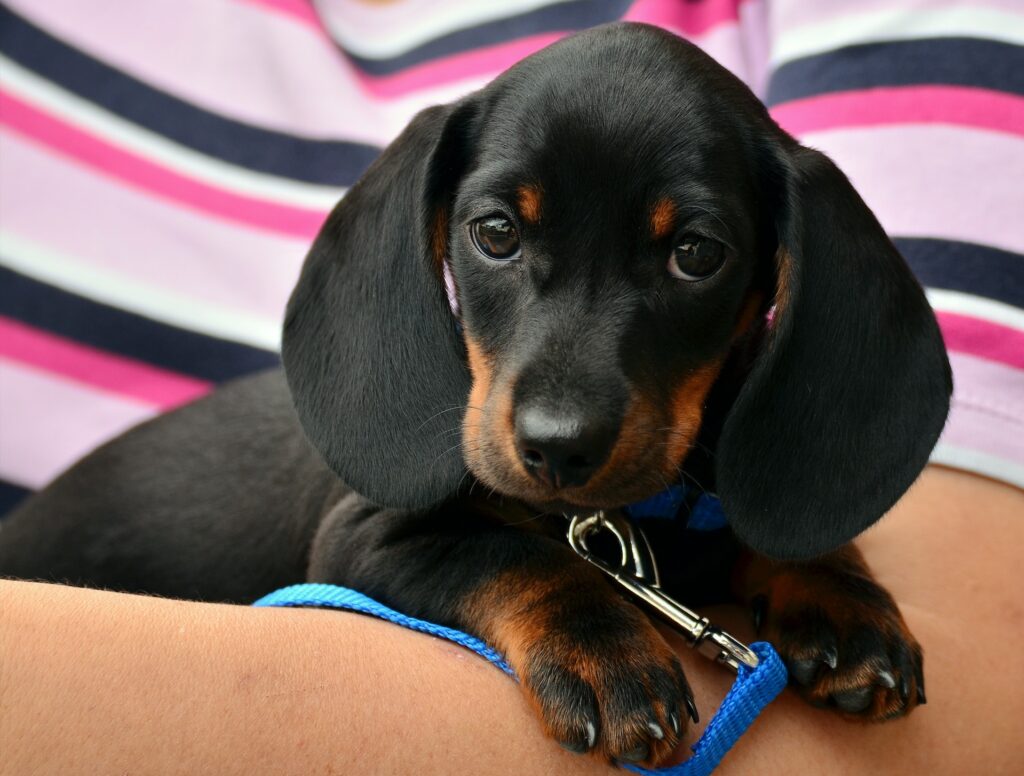Are you bringing home a new puppy soon? Bringing home a new puppy is a big responsibility, but also a lot of fun. Having a canine companion can improve your health and make you happier. But before you bring home your new puppy, you need to prepare everything for their arrival and do research on your puppy’s breed and temperament so that you’ll be ready to train them on everything they need to know.
There are many things you need to buy before your puppy comes home, including:
- A collar
- Food and water bowls
- A crate and bed
- Toys
- Food and treats
- A leash
Well before the big day, put together a list of things to buy before you bring your pup home, then go out and buy them. You should also puppy-proof your home to avoid any accidents.
Whether you love miniature dachshund puppies or Great Danes, all puppies are bundles of energy, love and joy. Here are a few things you should know before you get your puppy.
1. Be ready to spend a lot of time with your pup
Puppies, especially when they’re young, need a lot of time and attention. Even as your dog gets older, you’ll have to spend time with them each day on exercise, training and bonding. Your puppy won’t be able to be left alone for long periods at first, and you’ll have to make time for potty breaks and training sessions.
Before getting a puppy, consider your lifestyle and how much time you’ll be able to dedicate to a puppy. If necessary, make arrangements to be home more often, especially in the first several months. Your puppy’s first year is a very important time for their social development, so you need to take advantage of this window to expose them to new things, and that requires that you set aside time for training and outings with your pup. Make sure you’re ready for the time commitment before you get a new puppy.
2. Stick to a routine
A routine will help your puppy to know what to expect throughout the day. It will also help you fulfill their needs since you’ll have already set aside the time for playing with and training your puppy.
Puppies sleep a lot at first, so you probably won’t be playing with them all day long. Some short play and training sessions throughout the day are enough for young pups, as they tend to have short attention spans when they’re little. Also, be consistent about taking your puppy out for potty breaks. They’ll have fewer accidents if you’re proactive about taking them out.
3. Train your puppy from the start
You can start training your puppy from day one, just don’t expect too much from them at a young age. In the early days, you can get them used to being touched and handled, and teach them their name. As they start to get bigger, you can continue to teach them basic cues and obedience.
One thing you should never do is use force or punishment when training your puppy. Yelling at or hitting a puppy doesn’t teach them anything except to fear you, which you definitely don’t want. Instead, focus on rewarding your puppy for the things they get right. Use treats to reward them when they listen or they’re calm in the house. This will teach them the things that you expect from them.
4. Start socializing your puppy as soon as possible
The first few months of a puppy’s life are a crucial time to get them used to the sights, smells and sounds of the world around them. Socialization is more than having your dog meet other dogs or people. It’s taking them to new places and exposing them to as many new things as possible, from parks to shopping carts to vacuum cleaners.
Keep in mind that before your puppy gets all of their vaccinations, they are vulnerable to diseases so keep them away from strange dogs and places where they could pick up a disease. Even so, you can start socializing them. Take them on a drive to somewhere new, and roll the windows down so they can take in the sights and sounds. Or put them in the cart at a pet-friendly store while you’re running errands. Every new experience will help your puppy become a well-socialized, adult dog.
5. Choose the right timing
Don't bring home a new puppy right before a two-week vacation or before a big move. Plan your timing right so that your puppy can adjust to their new home and family. Maybe take some time off work when you bring home your pup so that they can get settled.
A new puppy is a lot of responsibility. Puppies require a lot of time and energy, especially when they’re young. You need to have a good routine so that you can give your pup everything they need and make time for training and socializing. Use the tips in this article to prepare to bring home your new puppy.

